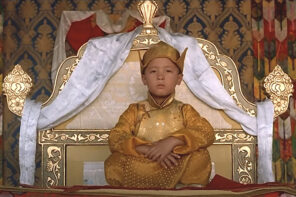Americans started out the past week hearing about the baby-killer Kermit Gosnell, the forced feeding of hunger striking prisoners at Guantanamo Bay, and yet another mind-numbing gang rape in India. The week quickly got even more devastating with the Boston marathon bombing and the US Senate’s vote not to make it even a tiny bit harder for Americans to buy guns. So much high-profile violence in rapid succession prompted The Onion to cry, “Jesus, this week” (while Jezebel went even further).
Such events bring to mind age-old questions of “theological anthropology,” which religions have sought to answer since time immemorial: Is there such a thing as universal human nature, and if so, is it ineluctably violent? Is all this violence necessary? Can we even hope for better?
It is not simply a question of navel-gazing. Ask any person on the street about her philosophy of human nature and she will be able to give you some kind of answer. And what we think about human nature affects everything else we think with regard to organizing human society. Are humans born essentially neutral, with capacity for both good and evil depending on context and circumstances? If so, then policy can be designed to bring out the good and minimize the bad. This kind of mindset often leaves proponents vulnerable to charges of “social engineering.”
Other folks seem to trend in the other direction: humans (or at least the ones with Y chromosomes) are basically and ineluctably violent. War, murder, and rape are just part and parcel of being a (hu)man. This, too, has repercussions; if there is no point in trying to reduce incidences of violence through policy, we should just accept it as an everyday reality and leave individuals alone to prepare accordingly. Think: women must cover up their bodies, or “The only way to stop a bad guy with a gun is a good guy with a gun.” Then again, perhaps it is only a few bad seeds, “monsters,” who cause all the problems.
The Dalai Lama’s represents another point of view altogether. In his book, Beyond Religion, he argues that humans’ basic essence is gentle: “We have an underlying human disposition toward love, kindness, and affection” that needs nurturing. He comes to this conclusion via Buddhist tradition, of course, but also by his own observations of human suffering. (Catholic theologian Dana Dillon says something similar: “let’s step in and fight the isolation with love and community… Act as though people are yearning for connection and community. They probably are.”)
To view human beings “as dominated by destructive tendencies,” argues the Dalai Lama, limits our imaginations about social life to nothing more than “keeping those destructive tendencies in check.” It precludes any creative thinking about human character, about who we want to be. It also limits our ability to ask about community, the good society, or whether or not our institutions and traditions are helping to shape us in ways we believe are good.
Regardless of whether we see violence as a matter of nature or nurture, we still have questions to answer. Are the Boston bombers products of Chechnya, America, bad parenting, or mental illness? Is Kermit Gosnell a monster or merely a symptom of his culture? Are Indian men biologically destined toward gang rape or does their social context encourage it? Is violence an individual problem, or is it a matter of the “common good” for which all of us bear some responsibility?
Perhaps most importantly, do we dare hope for anything more than a sad, angry world in which violence is the final word on human nature?




